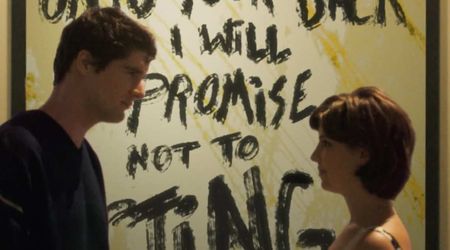Ryan Murphy's 'Pose' is an extravagant celebration of 1980s gay and trans culture

What better way to step into the Pride Month than a good TV show taking us back to 1980s drag ball culture. Ryan Murphy's 'Pose' debuted on June 3 and an hour's episode is enough to stir a wide range of emotions.
The first episode features everything from drag competitions to vogueing, to coming out of the closet. The powerful episode highlights the Ronald Reagen era, AIDS epidemic, Donald Trump's organization and the struggle for the American identity.
The most important thing about the show, however, is the humanization of transgender people. Unlike any shows we have seen in the past where gays and transgenders are given a side role, this particular show is an insight to their life and their struggle and, believe it or not, this is a story you want to know.
The series is briefed to belong to a dance musical genre and you're instantly introduced to New York City's golden age of balls with an opening music of Taana Gardner's “Heartbeat" commanding a group of drag queens to strike a pose. It starts with a grandeur of 'House of Abundance,' a group of popular transgenders winning most of the balls and headed by the "mother" Elektra Abundance.
Before we proceed with the storyline, it is important to note what these balls are. In the episode, a ball is "a gathering of people who are not welcome to gather anywhere else, the celebration of a life the rest of the world does not deem worthy of celebration." This underground activity hosts fashion-derived and dance-based categories in which contestants seek to display superior "realness," skill or style. The winners gets trophies and titles and frequent winners are given the title of being "legendary."
Elektra's House of Abundance is one such house where balls are held. She attempts to rob a museum for a royal-themed competition but, surprisingly, despite of being caught by the police, the charges are dropped. Then we are introduced to Blanca, a "child" of the Abundance who learns that she is HIV positive and sets out to open her own new house. This causes conflict with Elektra, who is draped in glamourous chiffon and silk turbans.
You can sense narcissism, pride and a struggle to be accepted. As Blanca moves out from Elektra's dominance, her first "child" is the 17-year-old black gay boy named Damon who aspires to be a professional dancer. The relationship between Damon and Blanca will pretty much make you cry a river. Damon is kicked out of his house for being a homosexual and his God-fearing homophobic parents call him a "sinner."
When his hopes are crushed, Blanca helps him fill out an application to The New School for Dance and secures an on-spot audition after Damon fails to submit his application. Blanca tells the authorities that she is his mother and rekindles the hope for a homeless and hopeless boy. He gets through the audition and wins the headmistress's heart and earns a spot in the prestigous school.
Another interwoven story and a heart-wrenching one is of a transgender named Angel who is a sex worker falling in love with a white married man. She leaves Elektra's House of Abundance and joins Blanca's House of Evangelista, becoming the second child of the house. Blanca's house has a showdown with Elektra's House of Abundance. Blanca loses but that only makes them eager to try again.
Summing up the first episode, Blanca is determined to achieve her goals. Her house, though strict, is full of love and maternal care, "no drugs, no gentlemen callers and anything you 'mop' belongs to the community." To “mop” is to steal and is in stark contrast with Elektra's house.
The tone of the series is set. It is unapologetically honest and the sincerity of the actors is reflected in the hard-hitting scenes. 'Pose' has set a record of largest transgender cast and crew ever signed up for a scripted television show. Murphy had previously stated that the show has employed more than 140 trans or LGBTQ actors and crew members so far.
E! News reported that the character Damon, played by Ryan Jamal Swain, actually echoes his real-life story on screen. "My character, Damon, comes from Pennsylvania after getting kicked out for being gay," says Swain. "For me, having this moment right now, where I'm on this show and I'm flying off to LA and I'm working with a choreographer. I'm a little boy from Birmingham, Alabama, who came to New York with $50 in his pocket two years ago, and I feel it. I have to take a deep breath."
The impressive cast members include names like MJ Rodriguez as Blanca, Indya Moore as Angel, Billy Porter, a 2013 Tony winner for 'Kinky Boots,' as Pray Tell, who emcees the balls, sews costumes and works at Macy's as a "cologne spritzer."
The fact that the story about the marginalized community is finally being told and that too in such a grand scale by Ryan Murphy is great news for many who were raising their voices on transgender's representation on TV. Added to that, the show is impactful. On May 9, Murphy took to Twitter to announce that he will be donating all of the profits from the series to trans and LGBTQ charitable organizations.
“These groups do amazing work and need our support,” he wrote. “Every day for the next 14 days I will highlight a group I’m supporting, and encourage you to do the same!”
While this may be a remarkable effort on Murphy's part, it is to be questioned if it appeals to the audience, because telling such a big story comes with a massive responsibility. However, the first episode has hit the mark and the setting during the fabulous '80s era hints at the dangers of Trump (way before his presidency), with his rather corrupt Trump Organization and employees snorting cocaine at posh Park Avenue office.
The show also clears a lot of misconceptions people have about the LGBT+ communities. Take voguing, for example. When Madonna's single 'Vogue' hit the record stores with 'Strike a pose' in the 1990s, the singer became the face of voguing. However, somewhere underground in the 1980s, when the battles of 'who's the most fabulous of them all?' raged, there was more than a handful of drags striking the pose.











